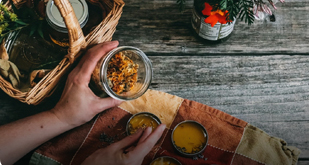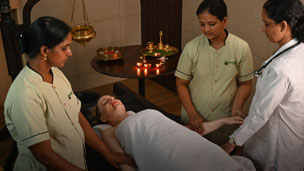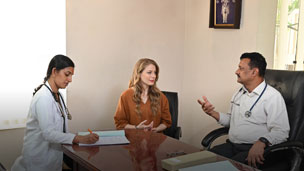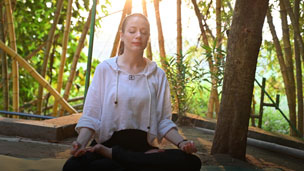


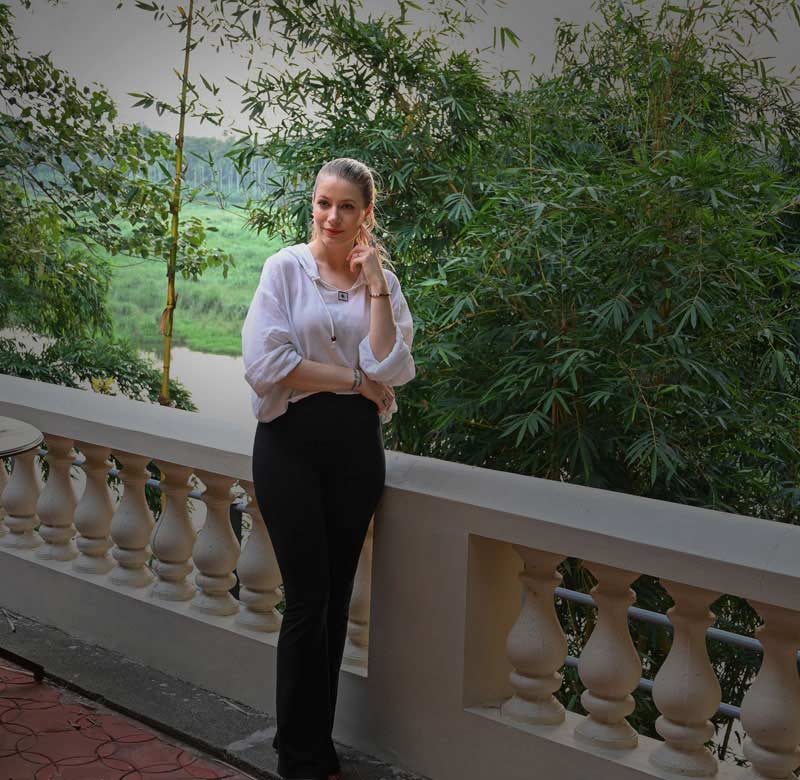

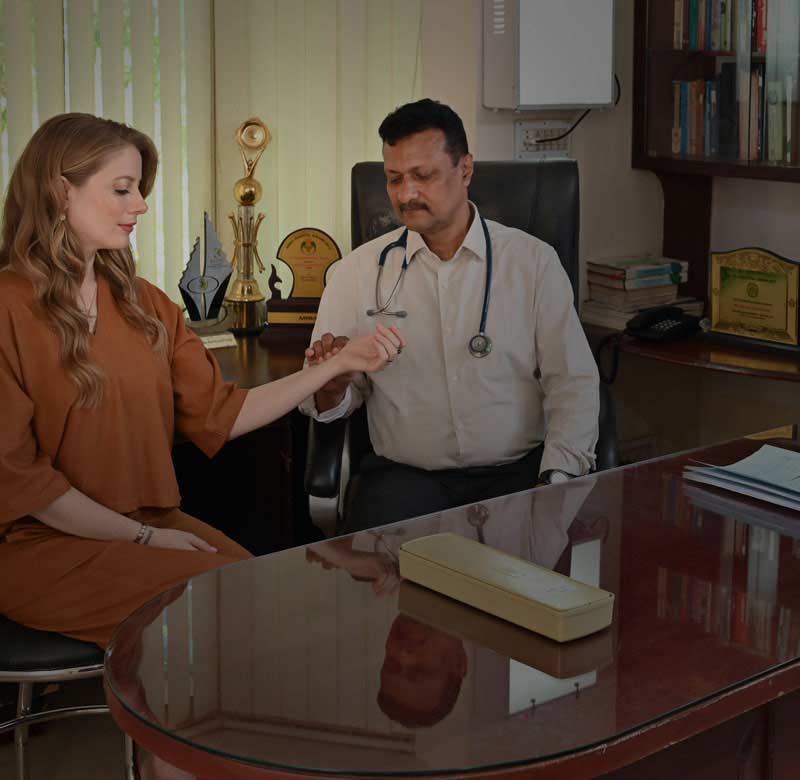

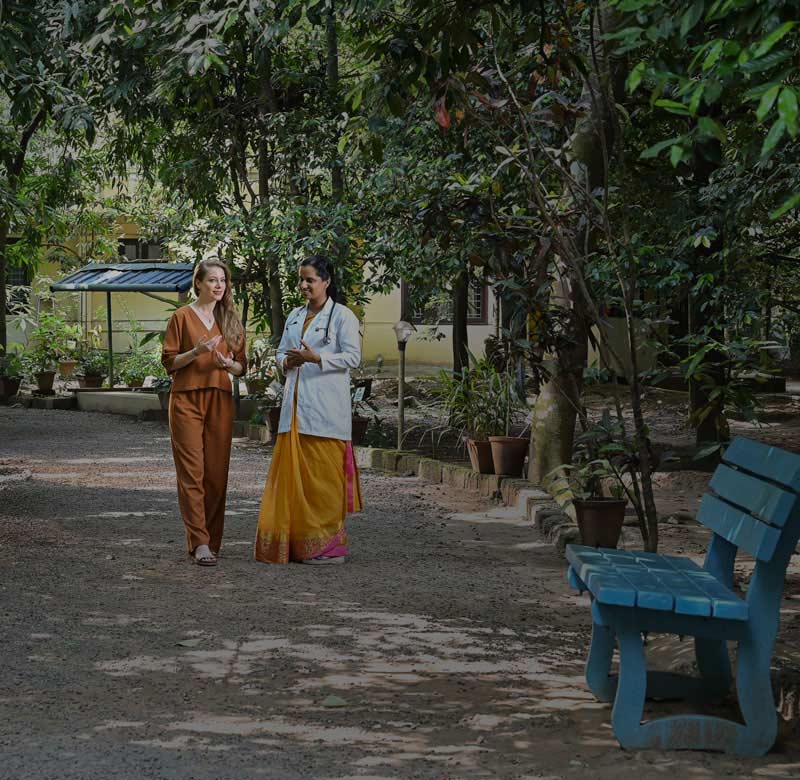
For authentic & scientific
ayurveda
Nagarjuna has developed speciality protocols
and adopted integrated and holistic approaches “to improve
the quality of life of ailing population”.
Psoriasis
Psoriasis, a chronic autoimmune condition, manifests on the skin but actually affects the entire body. It commonly appears on the scalp, knees, elbows, or behind the ears, often mistaken for dandruff until diagnosed by a specialist. Psoriasis presents in three main forms: scaly irregular-shaped patches, reddish coppery patches with a burning sensation, and thick round patches accompanied by itching.
Managing psoriasis is challenging but not impossible. While modern medicine often resorts to steroids, this approach can worsen the condition by suppressing it and allowing the disease to penetrate deeper tissues. The primary focus is to prevent the progression of psoriasis and the development of complications like psoriatic arthritis and psoriatic heart conditions. Thoroughly cleansing the body is essential for individuals with psoriasis, followed by rejuvenation. A comprehensive and holistic approach is necessary to effectively handle this condition. Improving the immune system is crucial for better outcomes, which naturally occurs after detoxification performed by experts.
Skin conditions can result from infections or toxic reactions. This poses two issues: the skin problem itself and the cosmetic aspect. Potential causes include microbial infections, food poisoning, or exposure to toxic substances. Psoriasis is the most prevalent and challenging condition, although its exact causes have not been identified. Some studies suggest that industrialization and excessive chemical exposure may contribute to psoriasis. Individuals working in industrial areas are more prone to developing chronic skin conditions. However, it is certain that an improper lifestyle and stress can exacerbate psoriasis.
Mismanagement of psoriasis can lead to complications such as psoriatic arthritis, heart conditions, and others. The use of steroids in medical treatment has never been the ideal approach. Oral or topical application of steroids only worsens the condition by affecting deeper tissues. Temporary relief and limited cosmetic benefits may be observed, but steroids cannot be used for extended periods as they harm internal organs.
For all skin diseases, internal and external cleansing and detoxification are the primary treatment methods. Different Panchakarma procedures, tailored to the specific condition (oozing, dry, scaly, full body, etc.), are adopted to cleanse and detoxify the entire body. Proper follow-up and making mild to moderate lifestyle changes can help individuals manage the condition effectively. Strict dietary restrictions should be followed for a speedy and efficient recovery. Seeking Ayurvedic treatment earlier yields better results.
Since psoriasis is associated with impure blood, the purification of blood is a fundamental treatment approach. Psoriasis, being an autoimmune disorder, requires a stricter regimen compared to other skin disorders. Takradhara and Pizhicil are Ayurvedic treatments that help maintain clear skin.
Psoriasis is a non-infectious yet inflammatory skin disease that disrupts the normal life cycle of skin cells. It leads to visible red patches on the skin covered with silvery scales. The excessive division of skin cells in the basal layer causes increased epidermal proliferation. Common symptoms include widespread red patches, severe itching, and pain. Although psoriasis can affect anyone, it primarily occurs in adults, especially those with a family history of the condition. Environmental and immunological factors also play significant roles.
Different types of psoriasis include psoriasis vulgaris, plaque psoriasis, guttate psoriasis, inverse psoriasis, pustular psoriasis, erythrodermic psoriasis, scalp psoriasis, nail psoriasis, psoriatic arthritis, oral psoriasis, and eruptive psoriasis. The treatment approach for psoriasis depends on factors such as the severity, type, size, and intensity of the patches, as well as individual reactions to medications and treatments.
According to traditional Ayurveda, the root cause of psoriasis is yet to be identified, but it attributes the condition to an imbalance of Vata and Kapha.
Please fill up the form to get in touch with us, or contact us for any queries



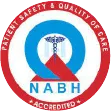

Terms of use | Privacy Policy | Contact us
Copyright © 2026. All Rights Reserved
Designed & Developed by Websoul Techserve


